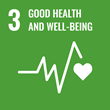Project information
Multimodal Microscopy Techniques Combining Raman, Quantitative Phase Imaging for Cancer Related Studies (MICROCOSM)
- Project Identification
- 74343
- Project Period
- 5/2025 - 1/2027
- Investor / Pogramme / Project type
-
Ostatní - foreign
- Other foreign funds
- MU Faculty or unit
- Central European Institute of Technology
- Cooperating Organization
-
Massachusetts Institute of Technology
Inside our bodies, cells, and tissues have their own unique mechanics that play a crucial role in our well-being. Imagine being able to peek into this microscopic world to understand how these tiny structures change, both in health and during diseases.
Our project aims to investigate the mechanical properties of cells and tissues using a combination of advanced methods like Atomic Force Microscopy (AFM), optical microscopies, and other cutting-edge techniques. By doing so, we'll observe and measure how these structures behave under different conditions, both in their natural state and when affected by diseases.
Using specialized tools like AFM, which can feel the surface of cells with incredible precision, and optical microscopies that enable us to see inside these structures, we'll collect detailed information about their mechanical properties. We'll compare the stiffness, flexibility, and other mechanical characteristics of healthy cells and tissues with those impacted by various diseases.
Understanding these mechanical changes is crucial. It can provide insights into the early stages of diseases or help us comprehend how certain treatments affect cells and tissues. By studying these alterations, we might discover new ways to diagnose diseases earlier or develop more effective therapies to combat them.
In essence, our project aims to uncover the mechanical differences within cells and tissues, shedding light on how these changes relate to both natural functioning and diseases. This knowledge could pave the way for innovative diagnostic tools and therapies that may improve healthcare outcomes in the future.
Sustainable Development Goals
Masaryk University is committed to the UN Sustainable Development Goals, which aim to improve the conditions and quality of life on our planet by 2030.
